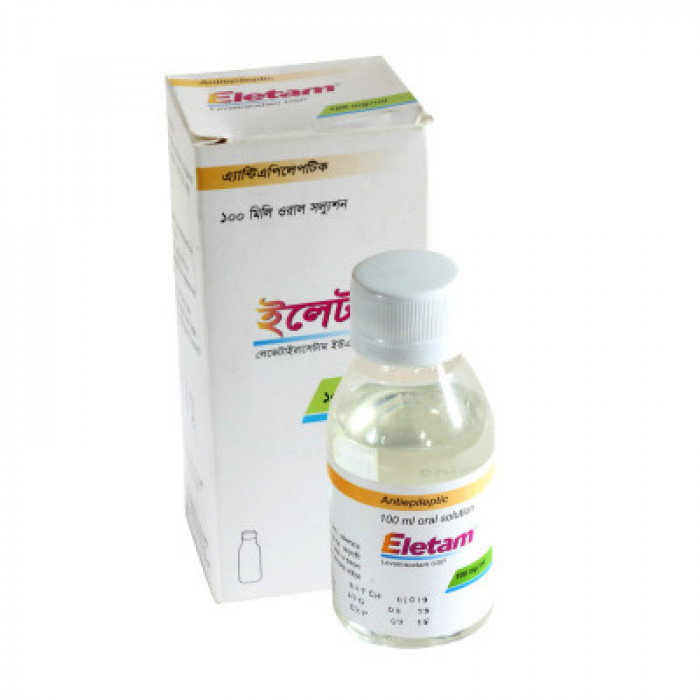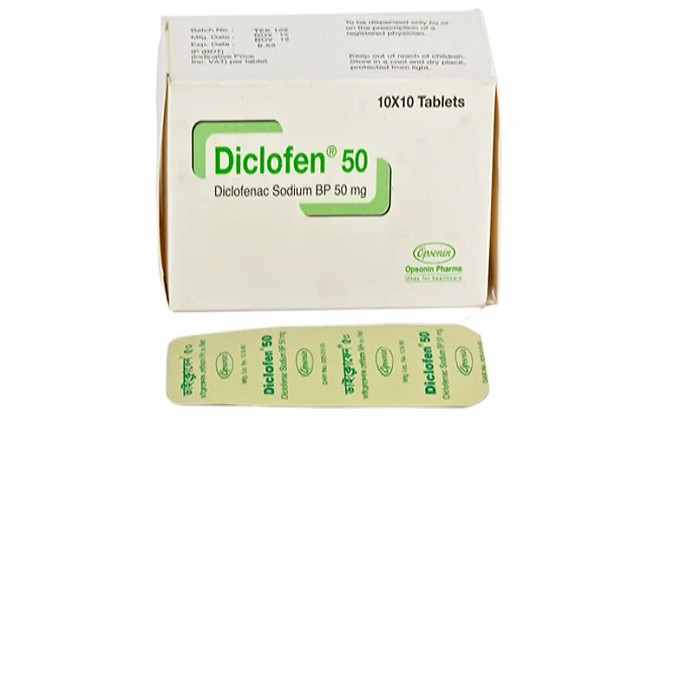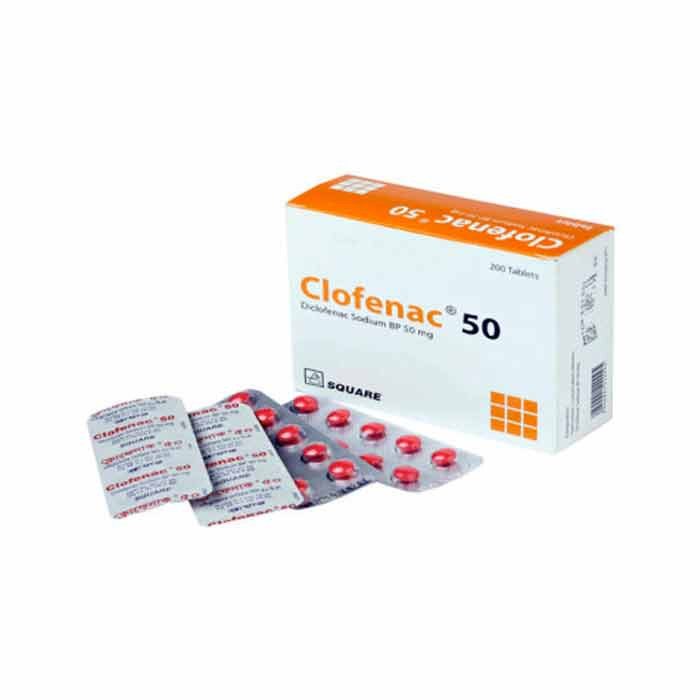
✔ 100% Authentic Product
👁️ Currently Viewing 1745
Eletam Oral Solution
Capsule. Manufacturer/Distributor: Unimed & Unihealth Manufacturers Ltd. Generic Name: Levetiracetam
Discount
Price: ৳ 380
MRP:
৳
400
5%
Off

100% Genuine Products, Guaranteed

Safe & Secure Payments, Always

Fast, Secure & Efficient Delivery

Proper Packaging
 Cash on Delivery - All over Bangladesh
Cash on Delivery - All over Bangladesh Regular Delivery - 12-24 Hours, Dhaka City* Charge Tk.39-59
Regular Delivery - 12-24 Hours, Dhaka City* Charge Tk.39-59 Regular Delivery - 24-48 Hours, Other Cities* Charge Tk.99-110
Regular Delivery - 24-48 Hours, Other Cities* Charge Tk.99-110
🌙 রমযান অফার 🌙
 ফ্রি ডেলিভারিঃ - ৭৯৯ টাকা+ অর্ডারে, ঢাকা
শহরে
ফ্রি ডেলিভারিঃ - ৭৯৯ টাকা+ অর্ডারে, ঢাকা
শহরে ফ্রি ডেলিভারিঃ - ২৭৯৯ টাকা+ অর্ডারে, ঢাকার
বাহিরে
ফ্রি ডেলিভারিঃ - ২৭৯৯ টাকা+ অর্ডারে, ঢাকার
বাহিরে
📲 মোবাইল অ্যাপ অর্ডারে সাশ্রয় বেশী
-
Google Play Store থেকে ডাউনলোড
-
Apple Store থেকে ডাউনলোড
100% Genuine Products, Guaranteed
Safe & Secure Payments, Always
Fast, Secure & Efficient Delivery
Proper Packaging
 Cash on Delivery - All over Bangladesh
Cash on Delivery - All over Bangladesh Regular Delivery - 12-24 Hours, Dhaka City* Charge Tk.39-59
Regular Delivery - 12-24 Hours, Dhaka City* Charge Tk.39-59 Regular Delivery - 24-48 Hours, Other Cities* Charge Tk.99-110
Regular Delivery - 24-48 Hours, Other Cities* Charge Tk.99-110 ফ্রি ডেলিভারিঃ - ৭৯৯ টাকা+ অর্ডারে, ঢাকা
শহরে
ফ্রি ডেলিভারিঃ - ৭৯৯ টাকা+ অর্ডারে, ঢাকা
শহরে ফ্রি ডেলিভারিঃ - ২৭৯৯ টাকা+ অর্ডারে, ঢাকার
বাহিরে
ফ্রি ডেলিভারিঃ - ২৭৯৯ টাকা+ অর্ডারে, ঢাকার
বাহিরে- Google Play Store থেকে ডাউনলোড
- Apple Store থেকে ডাউনলোড
🌙 রমযান অফার 🌙
📲 মোবাইল অ্যাপ অর্ডারে সাশ্রয় বেশী
✅ Description:
Indications
Adults and adolescents from the age of 16 with newly diagnosed epilepsy should take levetiracetam as a monotherapy for partial-onset seizures with or without secondary generalization. Adults, adolescents, children, and newborns with epilepsy from the age of one month are prescribed levetiracetam as an additional therapy for partial-onset seizures with or without secondary generalization.
In the treatment of myoclonic seizures in adults and adolescents with Juvenile Myoclonic Epilepsy starting at the age of 12.
In the treatment of primary generalized tonic-clonic seizures in adults and adolescents with idiopathic generalised epilepsy starting at the age of 12 years.
Dosage & Administration
Adults and adolescents from 16 years of age: The recommended starting dose is 250 mg twice daily which should be increased to an initial therapeutic dose of 500 mg twice daily after two weeks. The dose can be further increased by 250 mg twice daily every two weeks depending upon the clinical response. The maximum dose is 1500 mg twice daily.
Adults (≥18 years) and adolescents (12 to 17 years) weighing 50 kg or more: The initial therapeutic dose is 500 mg twice daily. This dose can be started on the first day of treatment. Depending upon the clinical response and tolerability, the daily dose can be increased up to 1,500 mg twice daily. Dose changes can be made in 500 mg twice daily increases or decrease every two to four weeks.
Pediatric population: The tablet formulation is not adapted for use in infants and children under the age of 6 years. Oral solution is the preferred formulation for use in this population. In addition, the available dose strengths of the tablets are not appropriate for initial treatment in children weighing less than 25 kg, for patients unable to swallow tablets or for the administration of doses below 250 mg. In all of the above cases, oral solution should be used.
- Monotherapy: The safety and efficacy of levetiracetam in children and adolescents below 16 years as monotherapy treatment have not been established.
- Add-on therapy: Oral solution is the preferred formulation for use in infants and children under the age of 6 years. For children 6 years and above, oral solution should be used for doses under 250 mg, for doses not in multiples of 250 mg when dosing recommendation is not achievable by taking multiple tablets and for patients unable to swallow tablets. The lowest effective dose should be used. The starting dose for a child or adolescent of 25 kg should be 250 mg twice daily with a maximum dose of 750 mg twice daily. Dosing for children 50 kg or greater is the same as in adults.
- Add-on therapy: For infants aged from 1 month to less than 6 months: The oral solution is the formulation to use in infants.
The flm-coated tablets must be taken orally, swallowed with a sufcient quantity of liquid and may be taken with or without food. The daily dose is administered in two equally divided doses.
Interaction
Anti-epileptic drugs: pre-market data from adult clinical studies indicate that levetiracetam does not affect existing anti-epileptic drugs (phenytoin, carbamazepine, valproic acid, phenobarbital, lamotrigine, gabapentin and primidium) Ketones), and these anti-epileptic drugs have no effect. Affect the pharmacokinetics of levetiracetam.
Probenecid: Probenecid (500 mg, 4 times a day) is a renal tubular secretion blocker that has been shown to inhibit the renal clearance of major metabolites, but does not inhibit the renal clearance of levetiracetam . However, the concentration of this metabolite is still very low.
Methotrexate: It is reported that taking levetiracetam and methotrexate at the same time will reduce the clearance rate of methotrexate, causing the concentration of methotrexate in the blood to increase/extend to potentially toxic levels. For patients treated with these two drugs at the same time, the blood concentrations of methotrexate and levetiracetam should be carefully monitored.
Laxatives: When the osmotic laxative polyethylene glycol is co-administered with oral levetiracetam, isolated cases of reduced efficacy of levetiracetam have been reported. Therefore, polyethylene glycol should not be taken orally within one hour before and one hour after taking levetiracetam.
Food and alcohol: The absorption of levetiracetam is not affected by food, but the absorption rate is slightly reduced. There is no data on the interaction of levetiracetam with alcohol.
Contraindications
Hypersensitivity to the active substance or other pyrrolidone derivatives or to any of the excipients.
Side Effects
The following are the most common adverse responses (incidence 5% higher than placebo):
Somnolence, asthenia, illness, and dizziness in adults
Patients under the age of 18: weariness, irritability, aggressiveness, nasal congestion, and decreased appetite
Pregnancy & Lactation
Levetiracetam should not be used during pregnancy or by women of reproductive potential who are not utilizing contraception unless it is clinically essential. Human breast milk contains levetiracetam. As a result, nursing is not advised. If levetiracetam medication is required while breastfeeding, the treatment's value and risk should be evaluated against the importance of breastfeeding. In animal trials, there was no effect on fertility. There are no clinical data available, and the risk to humans is unclear.
Precautions & Warnings
Kidney damage: Patients with kidney damage may need to adjust the dose when taking levetiracetam. For patients with severe hepatic impairment, it is recommended to assess kidney function before choosing a dose.
Acute kidney injury: Levetiracetam use is rarely associated with acute kidney injury, and the time of onset varies from a few days to a few months.
Blood cell count: Rare reductions in blood cell count (neutropenia, agranulocytosis, leukopenia, thrombocytopenia and pancytopenia) are related to the administration of levetiracetam, usually at the beginning of treatment. For patients with severe weakness, fever, repeated infections, or coagulopathy, a complete blood count is recommended.
Suicide: According to reports, suicides, suicide attempts, suicidal ideation and behavior have occurred in patients treated with antiepileptic drugs (including levetiracetam). A meta-analysis of randomized placebo-controlled trials of anti-epileptic drugs showed a slight increase in the risk of suicidal thoughts and behavior. The mechanism of this risk is unclear. Therefore, patients should be monitored for signs of depression and/or suicidal thoughts and behavior, and appropriate treatment should be considered. If there are signs of depression and/or suicidal thoughts or behavior, the patient (and the patient's caregiver) should be advised to seek medical advice.
Pediatric population: The tablet formula is not suitable for infants and children under 6 years of age. The data available for children does not indicate an impact on growth and puberty. However, the long-term effects on children's learning, intelligence, growth, endocrine function, puberty, and reproductive potential are unclear.
Therapeutic Class
Adjunct anti-epileptic drugs
Storage Conditions
Store at a cool temperature (not exceeding 25°C) and dry place, protected from light.
⚠️Disclaimer:
At ePharma, we’re committed to providing accurate and accessible health information. However, all content is intended for informational purposes only and should not replace medical advice from a qualified physician. Please consult your healthcare provider for personalized guidance. We aim to support, not substitute, the doctor-patient relationship.









